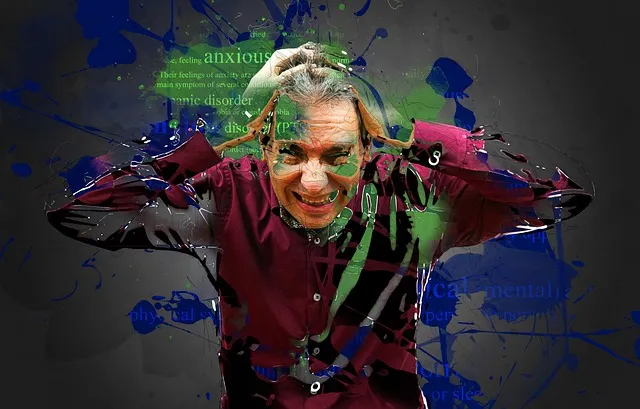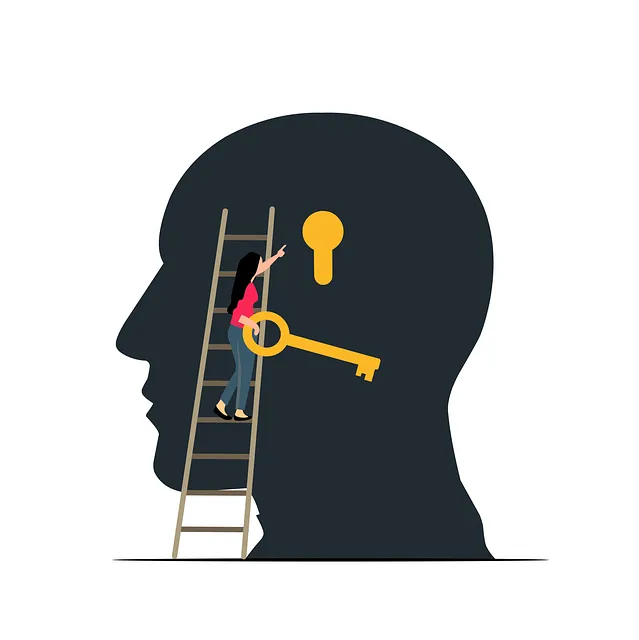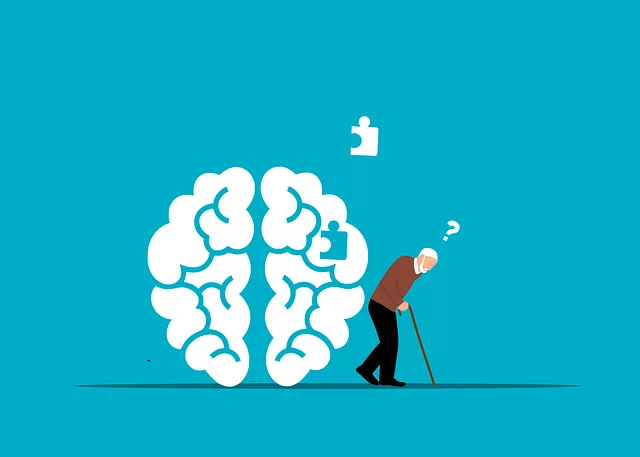Emotional Intelligence (EI), or EQ, is vital for positive interactions and relationships. Research shows its benefits on overall well-being, including improved mental wellness coaching, problem-solving, stress management, resilience, adaptability, and advocacy. Kaiser, providing mental health services in Centennial, supports individuals in cultivating EI through inner strength, self-esteem, effective communication, and deeper connections, enhancing life satisfaction. To improve EQ, assessing current levels is key, recognizing gaps like empathy or stress management for targeted interventions. Strategies such as communication techniques (active listening, clear expression) and compassion cultivation practices (mindfulness exercises) significantly enhance EI. Organizations like Kaiser integrate these techniques into well-being programs to boost productivity and job satisfaction.
Emotional intelligence (EQ) is a powerful tool for navigating life’s challenges and fostering well-being. This guide explores the significance of EQ, highlighting how it impacts our overall mental health and success in various aspects of life. We’ll delve into practical strategies and tools to help you identify areas for improvement, offering actionable steps towards building a stronger emotional intelligence, even if you’re located where Kaiser offers mental health services in Centennial.
- Understanding Emotional Intelligence and its Impact on Well-being
- Identifying Areas for Improvement: Assessing Your Current EQ
- Strategies and Tools to Enhance Emotional Intelligence
Understanding Emotional Intelligence and its Impact on Well-being

Emotional intelligence (EI) refers to an individual’s ability to recognize, understand, manage, and effectively utilize their own emotions, as well as those of others. It encompasses self-awareness, empathy, and social skills that facilitate positive interactions and foster strong relationships. Recognizing the significance of emotional intelligence, Kaiser offers mental health services in Centennial, supporting individuals in cultivating this vital skill set.
Developing EI has a profound impact on overall well-being. Research suggests that high emotional intelligence correlates with improved mental wellness coaching programs development, enhanced problem-solving abilities, and better stress management. Individuals with strong EI are often more adept at navigating challenging situations, displaying increased resilience and adaptability. Moreover, it plays a crucial role in promoting positive mental health policy analysis and advocacy, enabling individuals to communicate their emotions effectively and advocate for themselves or others. Cultivating inner strength development through emotional intelligence can lead to enhanced self-esteem, improved communication, and deeper connections with others, ultimately contributing to a more fulfilling life.
Identifying Areas for Improvement: Assessing Your Current EQ

Many people wonder, does Kaiser offer mental health services Centennial? The answer is yes, and this can be a great starting point for enhancing your emotional intelligence (EQ). Before diving into improvement strategies, assessing your current EQ level is crucial. This self-awareness allows you to identify areas where you excel and aspects that require attention. You might discover strengths in certain emotional skills but struggle with others, such as empathy or stress management.
By understanding these gaps, you can tailor empathy building strategies to address them effectively. For instance, if you recognize a need for better stress management, exploring Kaiser’s mental health services could offer valuable resources and guidance. These services often include tools and techniques to navigate challenging emotions, improve resilience, and enhance overall mental wellness.
Strategies and Tools to Enhance Emotional Intelligence

Emotional intelligence (EI) can be enhanced through various strategies and tools that foster self-awareness, empathy, and effective communication. One such approach is communication strategies, which include active listening, clear expression of feelings, and constructive feedback mechanisms. These practices not only improve personal relationships but also facilitate better understanding in the workplace, especially in teams where diverse perspectives are crucial.
Additionally, compassion cultivation practices play a significant role in EI development. Mindfulness exercises, for instance, help individuals stay present and respond thoughtfully to emotions rather than reacting impulsively. Practicing compassion towards oneself and others can also improve mood management, enabling better control over stress and negative emotions. Organizations like Kaiser, known for offering comprehensive mental health services in Centennial and beyond, emphasize these EI-building techniques as part of their employee well-being programs, recognizing their value in enhancing overall productivity and job satisfaction.
Emotional intelligence (EQ) is a powerful tool for enhancing well-being and navigating life’s challenges. By understanding your current EQ through self-assessment, you can identify areas for improvement and employ strategies offered by resources like Kaiser’s mental health services in Centennial. These tools are designed to help individuals develop self-awareness, manage emotions, and build stronger relationships—all of which contribute to a more fulfilling and balanced life. Whether you’re seeking personal growth or better professional interactions, investing in your emotional intelligence can be a game-changer.






